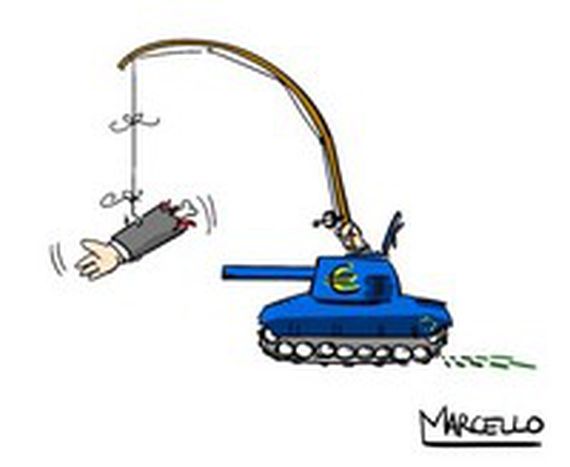
The takeover directive is worthless
Published on
Translation by:
 sally harbinson
sally harbinson
The European directive on takeover bids, which is intended to strengthen free competition in the common market, leaves countries a wide field of action to protect their national companies.
When faced with companies that want to invest in other countries and profit from the advantages of the single currency, there is a pressing need for a common legal framework and legal security. But the task of harmonising takeover procedures in Europe is not over yet. An initial attempt launched in 1989 was rejected in July 2001 by the European Parliament. The reason given was that in the legislation companies which found themselves the target of a foreign takeover were not able to defend themselves until they were authorized to do so by their shareholders. This could make European companies more vulnerable in comparison to their foreign, particularly US, counterparts. The second controversial point raised by the Parliament was that there was insufficient protection for the workers of companies was facing foreign takeover.
15 years of negotiations
In April 2004, there was major relief as the Union finally adopted the directive on takeovers: a key element was a plan of action for financial services approved in the 2000 Lisbon Summit. Two stipulations are mentioned in the text: the requirement of transparency for takeover procedures and the necessity of informing, or consulting, employees in both companies involved in the takeover. The principle which called for a company to get the authorization of its shareholders before defending itself against a takeover has become optional.
However, within this directive, there is another key provision: the reciprocity clause, which allows a company wanting to apply this principle to be exempt if it is facing a takeover by a company which does not respect this limitation. This provision leaves the Member States free choice about whether or not they apply this reciprocity clause. The government thus retains a great deal of flexibility in implementing defensive measures against hostile foreign takeovers.
Powerless directive
Although the deadline for implementing the directive in the Member States’ legislations is fixed for May 20, several countries have not yet modified their legal structures. Belgium, Italy and Spain are among the stragglers. The legislation has just been adapted to include the EC scheme in Luxembourg and France, where the governments are trying to block Mittal Steel’s bid on Arcelor. Several Member States are trying to favour “national champions” faced with incursions by foreign companies in key sectors, such as energy. Conspicuous examples are the merger between Gaz de France and Suez, which was announced by the French government to counter a bid by Italian group Enel, and how about the Spanish government’s intervention to stop German group E.ON’s takeover bid on Endesa?
In truth, the takeover directive provides everything except a clear response to the issue of state interventions to counter hostile offers on a national company. By leaving the countries a wide scope for manoeuvre, it actually encourages practices of economic patriotism by the national authorities. In March, Charlie McCreevy, Commissioner in charge of the Internal Market and Services, warned the Member States, that he would not remain “inactive about protectionism." Brussels has now begun legal action against 17 EU states - including France, the UK, Germany and Italy - for failing to ensure directives on opening energy markets to full competition were incorporated into national law.
However, the European Commission’s capacity to act remains limited: as it can only act against a Member State taking steps to protect its national companies when such an intervention affects EC interior market rules and regulations. This procedure is very slow as the State must first defend its position before the Commission can file a lawsuit before the Courts of Justice, upon which it will rule as a last resort.
Translated from La directive OPA compte pour du beurre


